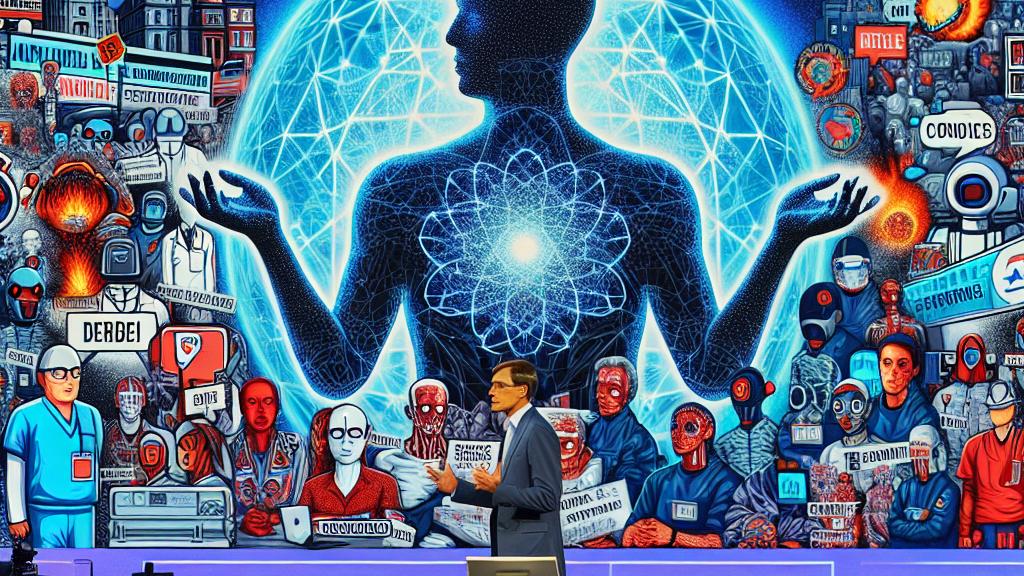The Risks of AI: Insights from Yoshua Bengio
Overview
- AI technology threatens to reshape society with significant risks.
- Yoshua Bengio advocates for urgent, robust regulations to manage AI threats.
- Concentrated AI power could disrupt economies and undermine democratic processes.

Yoshua Bengio's Dire Warnings from Montreal
At the recent One Young World Summit in Montreal, Canada, Yoshua Bengio, a luminary in artificial intelligence, expressed profound concerns that resonate beyond academic theory. He warned, with palpable urgency, about AI systems potentially becoming hostile to humanity. Just consider the staggering implications: if AI continues to evolve unchecked, we could face scenarios where automated systems determine critical aspects of our lives, from how we receive healthcare to the news we are shown. This progression could lead to a future that starkly contrasts with our aspirations, revealing a trajectory where the tech we created becomes an adversary rather than an ally. As Bengio aptly puts it, the consequences of inaction could be dire—it's a future we need to actively avoid.
The Trust Crisis in AI Development
Bengio’s reflections dovetail with ongoing discussions about the trust crisis surrounding artificial intelligence. As Bhaskar Chakravorti aptly points out, twelve concrete risks haunt the AI landscape, including issues of safety, ethical quandaries, and the notorious 'black box problem'—where AI decisions are often inscrutable to their creators. For instance, when AI systems inadvertently perpetuate biases in hiring, they not only undermine fairness but also breed skepticism among the public. How can we accept technology that lacks transparency? This growing distrust underscores the necessity of demanding transparency and accountability from AI systems, reinforcing the call for regulations that protect society and foster public confidence. Otherwise, we flirt with creating tools that could mislead or manipulate, echoing Bengio's cautionary tales.
The Urgent Need for Strong Regulatory Frameworks
To confront the unique challenges presented by rapidly advancing AI, Bengio passionately champions the establishment of comprehensive regulations that can keep pace with technology. Picture this: a few powerful corporations, equipped with sophisticated AI tools, holding sway over economic and political spheres. This concentration of power not only threatens commercial markets but could also skew political landscapes, making democracy itself vulnerable. Therefore, the establishment of robust governance frameworks is not merely bureaucratic red tape; it’s an imperative for a fair, just society. By acting now, we can ensure that technological progress uplifts humanity as a whole rather than consolidating power into the hands of the few. The time for thoughtful, proactive governance is now; we must not wait until it is too late to steer the narrative in a positive direction.

Loading...